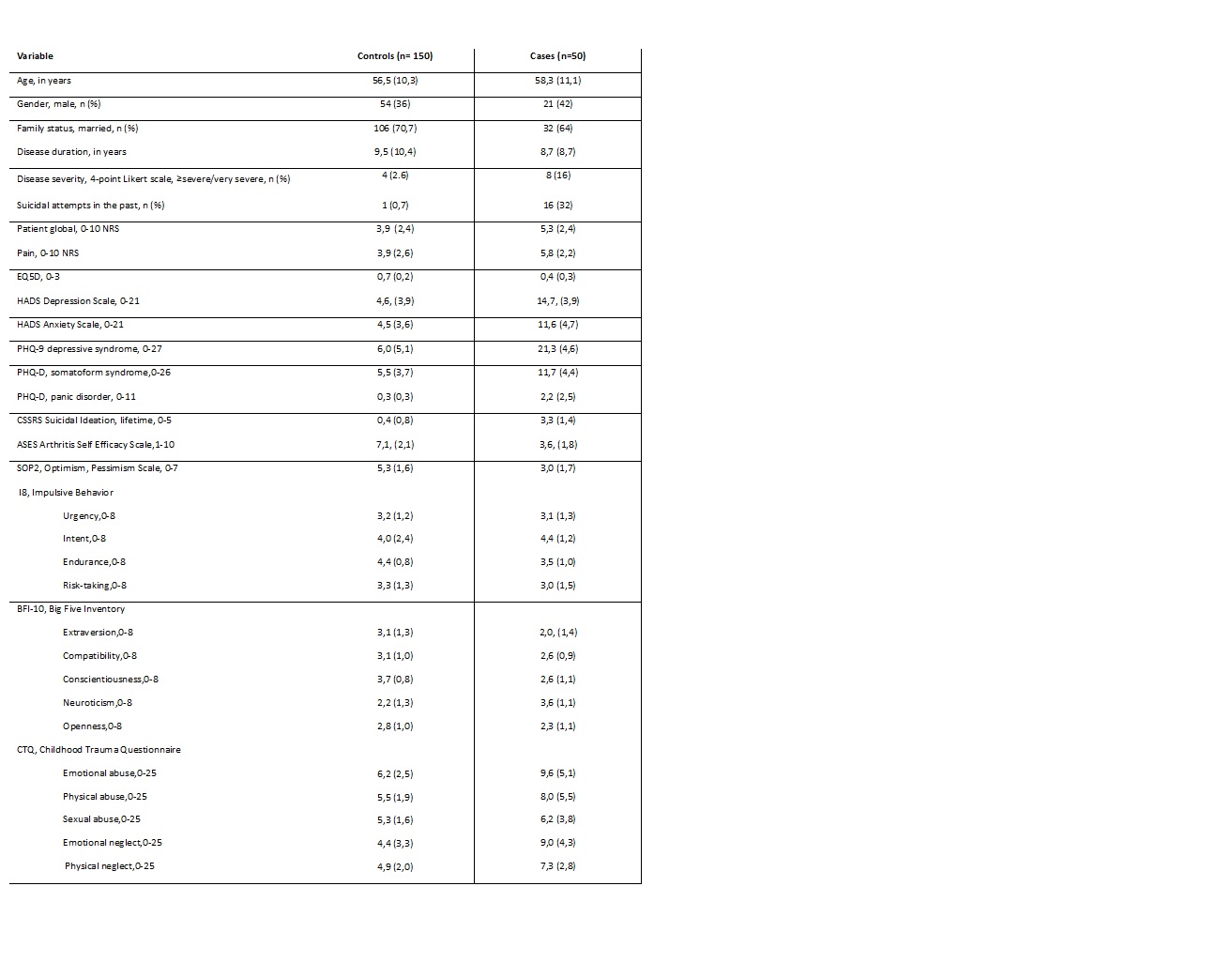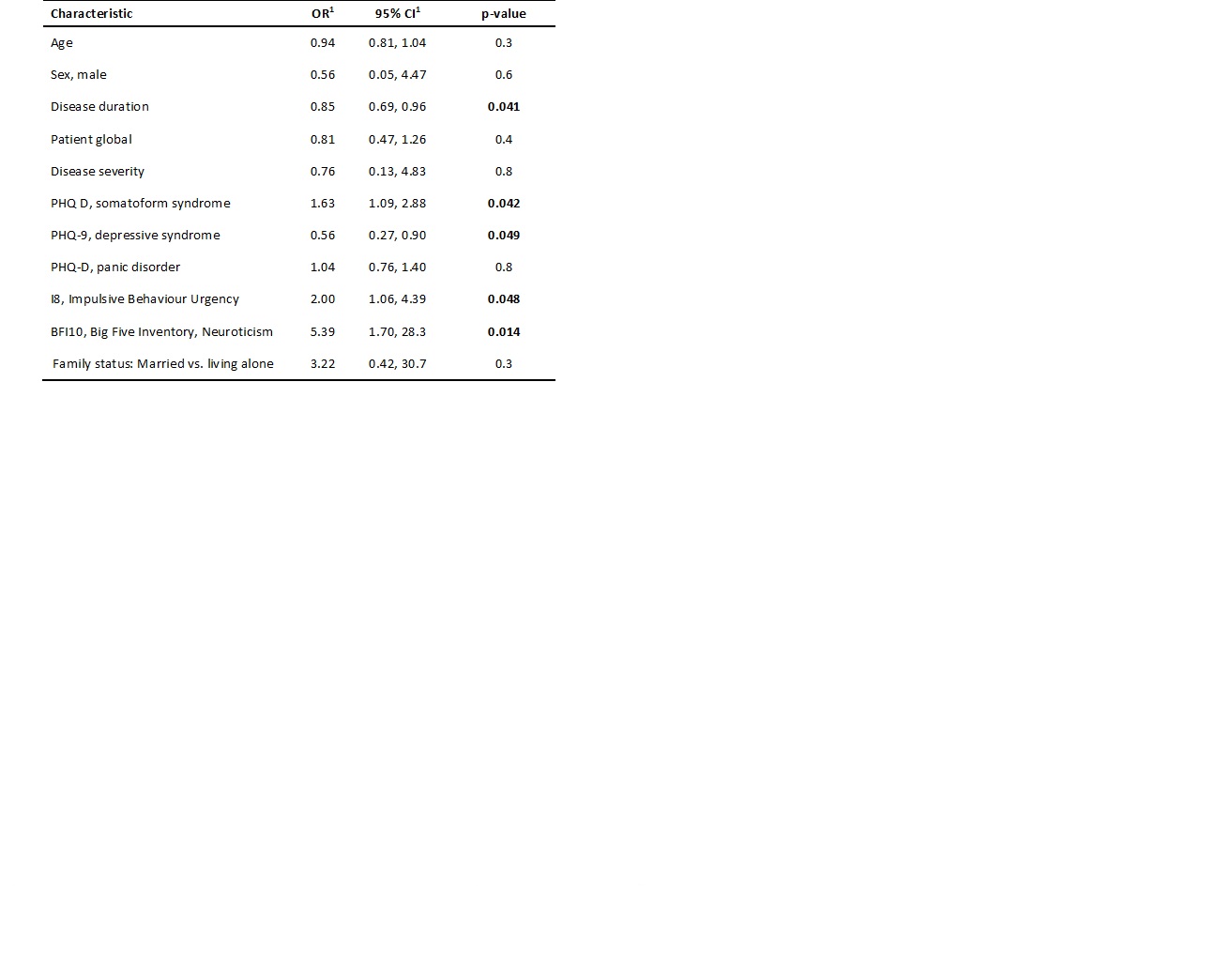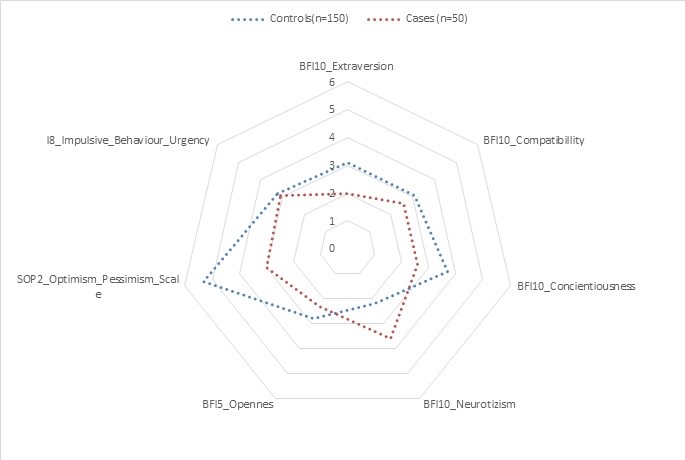Session Information
Date: Sunday, November 12, 2023
Title: (0325–0344) Patient Outcomes, Preferences, & Attitudes Poster I
Session Type: Poster Session A
Session Time: 9:00AM-11:00AM
Background/Purpose: Mental health contributes to the morbidity of patients with inflammatory rheumatic musculoskeletal disease (iRMD). Despite extensive research conducted on the prevalence of depressive disorders, limited data on occurrence of suicidal ideation among iRMD patients is available. This study aims to evaluate the prevalence of suicidal ideation in a cohort of iRMD patients and to explore the factors that are associated with suicidal ideation.
Methods: We identified cases from the German osbeservational LORE cohort, consisting of patients with various types of iRMD, who reported suicidal ideations at least weekly (using PHQ-9). These cases were matched in a 1:3 ratio according to age and gender with patients from the same cohort who did not report any suicidal ideations. Patient and disease characteristics such as disease activity, physical function, mental health, and disease severity as well as factors that are reported to be associated with suicidal ideations, such as previous suicidal attempts, childhood trauma, and personality factors were assessed in a case control study. A standardized clinical interview conducted by a psychosomatic expert was offered to all identified cases. Psychosomatic experts and rheumatologists rated independently whether suicidal ideation was being casual related to iRMD (NRS 0-10, 10 strong confidence in causal relationship). Five questions of the Columbia Suicidal Severity Rating Scale (C-SSRS) were used to assess lifetime suicidal ideation. According to the C-SSRS, patients were stratified into high risk (suicidal intent), moderate risk (suicidal thoughts with methods) and low risk (wish to be dead or non-specific active suicidal thoughts). Factors probably associated with risk of suicidal ideation were investigated using multivariable logistic regression analysis.
Results: We identified a total of 95 cases out of 2960 patients resulting in a prevalence of suicidal ideations of 3.2%. Among these cases, 50 completed the questionnaires, while 150 individuals served as controls. While demographics did not differ between cases and controls patient reported outcome was substantially higher in cases than controls (Table 1). In addition, it was observed that personality factors such as pessimism and neuroticism differed between cases and controls (Figure 1). 25 cases (50%) underwent clinical interviews in a psychosomatic clinic. Confidence in causal relationship between iRMD and suicidal ideation was reported by psychosomatic experts with higher values than by rheumatologists 5.4 (3.5) versus 1.6 (1.6). Predictors for suicidal ideation were shorter disease duration, presence of a somatoform or depressive syndrome, larger impulsivity and neurotic personality (Table 2).
Conclusion: A substantial number of patients reported suicidal ideation in our cohort. Of interest, most vulnerable groups were patients with shorter disease duration or a concomitant somatoform or depressive syndrome. Inadequate coping might have influenced the risk for suicidal ideation. Interestingly, known risk factors for suicidal ideation were not identified as such in our study. Larger-scaled studies would be instrumental to unravel further suicidal ideation and its underlying factors.
To cite this abstract in AMA style:
von Schlichting E, Dieris-Hirche J, Redeker I, Baraliakos X, Kiltz U. Factors Associated with Suicidal Ideation Among Patients with Inflammatory Rheumatic Musculoskeletal Disease: A Case-Control Study [abstract]. Arthritis Rheumatol. 2023; 75 (suppl 9). https://acrabstracts.org/abstract/factors-associated-with-suicidal-ideation-among-patients-with-inflammatory-rheumatic-musculoskeletal-disease-a-case-control-study/. Accessed .« Back to ACR Convergence 2023
ACR Meeting Abstracts - https://acrabstracts.org/abstract/factors-associated-with-suicidal-ideation-among-patients-with-inflammatory-rheumatic-musculoskeletal-disease-a-case-control-study/



